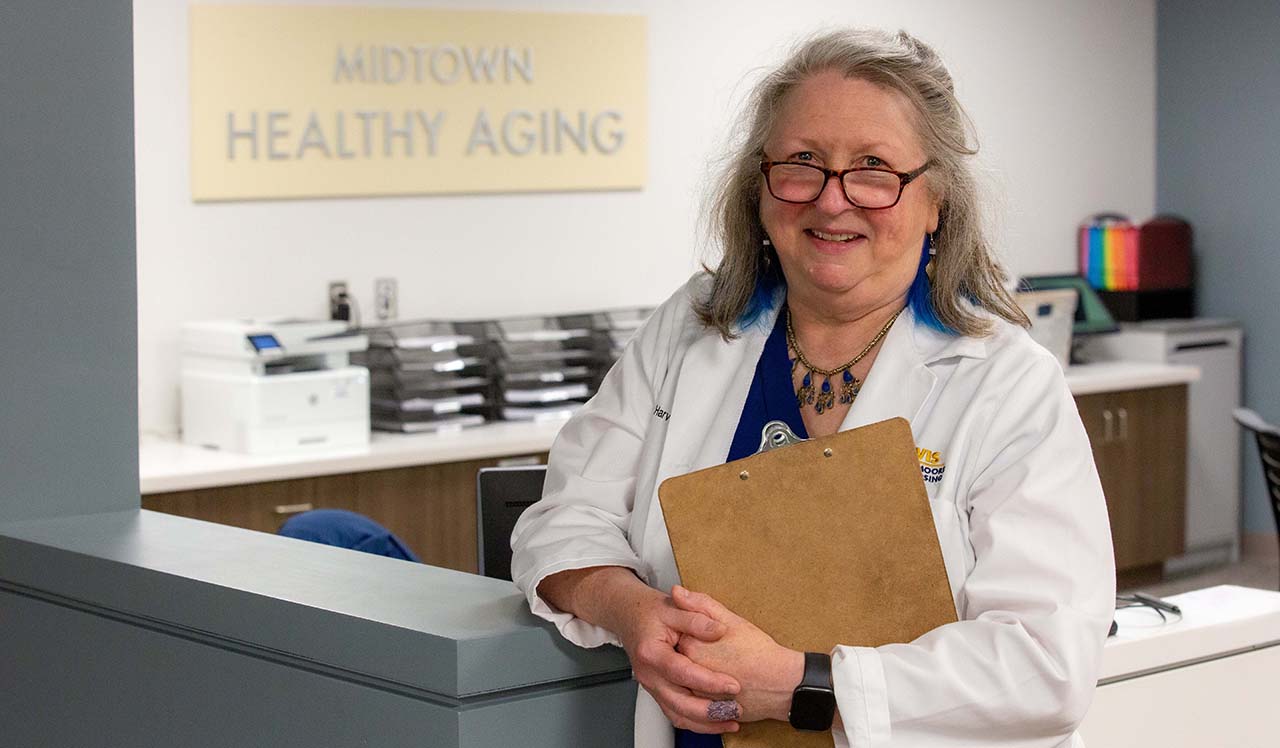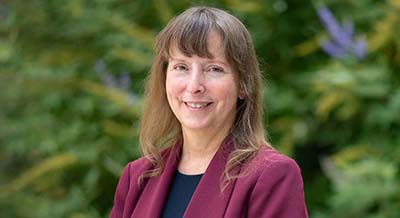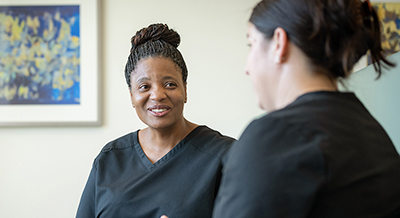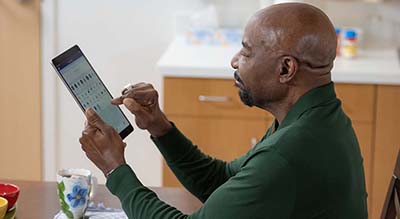January 2021 marked nine months into the coronavirus pandemic, witnessed the beginning of vaccination efforts to combat COVID-19 and ushered in new leadership for the Gerontological Society of America (GSA).
Terri Harvath, a member of GSA for 35 years, assumed the helm of the nation’s largest interdisciplinary organization devoted to the field of aging. An internationally recognized expert in gerontological nursing and nursing education, Harvath chose “Disruption to Transformation: Aging in the ‘New Normal’” as the theme for the organization’s annual conference.
“While the events of 2020 caused tremendous distress and unrest, I think we would be remiss if we didn’t recognize that these moments of immense upheaval in history also create the openings to make big, transformative changes that are often not possible in the context of life as usual,” Harvath says. “Rather than diminish the significance and challenges of 2020, I want to see the unprecedented opportunity for change in the midst of chaos.”
Harvath’s focus on aging spans decades. As senior director for strategic initiatives at the Betty Irene Moore School of Nursing at UC Davis, she leads initiatives and partnerships across UC Davis Health to ensure the best care, research and innovation for the older adult population. She also serves as the founding director of the school’s Family Caregiving Institute, which launched in 2017 to advance research, education and policy to support caregivers. The institute has hosted three international conferences and GSA workshops to broker valuable discussions on the role of family caregivers to older adults.
“We’re proud to have one of our own leading this prestigious national organization focused on the growing older-adult population,” says UC Davis Health CEO David Lubarsky. “Her expertise is well suited to lead national aging efforts and her spirit of collaboration will benefit the work we’re doing at UC Davis Health and share what we’re doing with others around the nation.”
In addition to planning for GSA’s annual conference, Harvath set an ambitious agenda. She expanded the scope of work for the organization’s diversity and justice workgroup. She collaborated with the Minorities in Gerontology Advisory Panel of GSA to identify disparities in aging research, which she then sent to the National Institute of Aging. And she worked to strengthen the voice of nursing in policy advocacy.
“Between the pandemic, the acrimonious political climate, the protests against structural racism and the disasters wrought by climate change, no one has been left untouched. Older adults, especially older adults of color, have borne a disproportionate burden of these events,” Harvath explains. “My sincere hope is that we work together to create substantive change in how we care for the most vulnerable in our society.”
Despite the national spotlight, Harvath admits reluctance to take on the moniker of leader and admits to feeling like an imposter at times.
“What I’ve learned about the imposter syndrome over time is that it usually pops up when I am stretching myself beyond my comfort zone,” Harvath says. “On the whole, I think that is a good thing, even if it feels uncomfortable at times. And over time, I have also learned that leadership isn’t about occupying a position of power, it is about using that position to effect change, to make things better for others.”
Perhaps it’s no surprise that in 2015 Harvath left Oregon Health & Science University, the place where she spent the majority of her career, to join the young School of Nursing in Sacramento, California — a place where leadership is one of the core values upon which the school was founded and where leadership skills are woven into various courses and across the entire curriculum.
“If we are going to make substantive, lasting change in our health care system, change that is needed to address the many inequities, we need leadership,” Harvath explains. “Change isn’t going to happen from more research, though more research is needed. Change isn’t going to happen by giving people information and knowledge, though these, too, are important.
“Change happens when a group of committed individuals work together to build new systems. I can’t think of any place I rather be than UC Davis Health, working with so many others who share a vision for a more equitable health care system,” she adds.
In the words of Harry Potter’s Albus Dumbledore, “It is a curious thing Harry, but perhaps those who are best suited to power are those who have never sought it, those who have leadership thrust upon them, and take up the mantle because they must, and find to their own surprise that they wear it well.”
Harvath continues to suit up and be the voice of a population that will more than double over the next 40 years.






